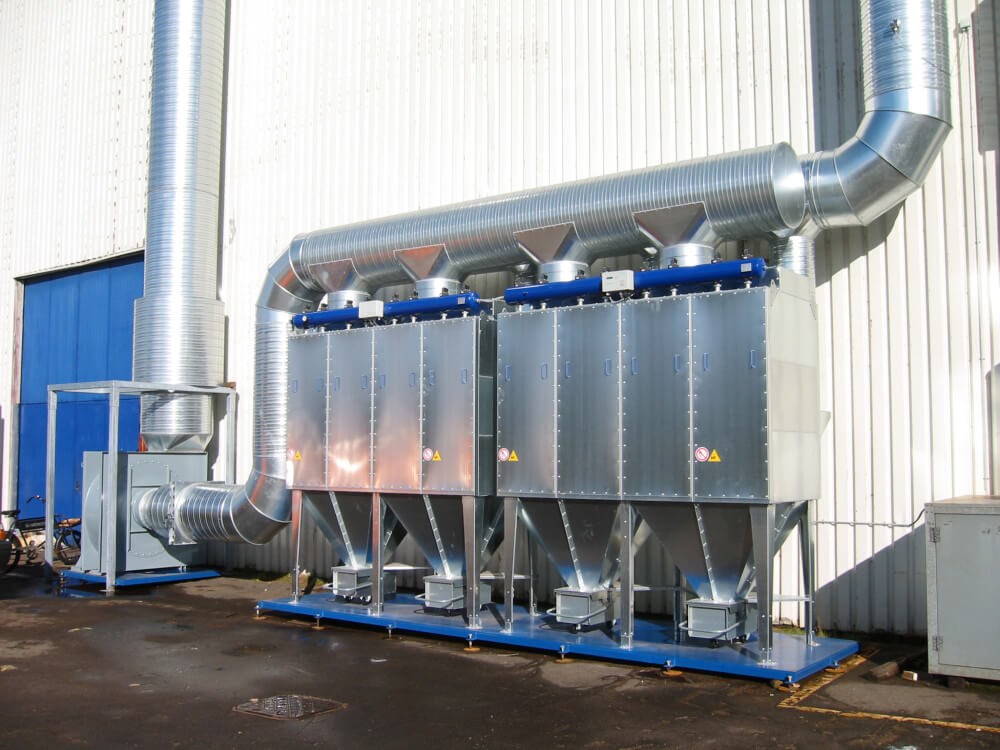In the bustling world of manufacturing, where machines hum and production lines churn out goods, the quality of the air we breathe often takes a backseat. However, it’s crucial to recognize that effective air filtration plays a pivotal role in maintaining a safe and productive workspace.
Contents
Why Industrial Filtration Matters
- Contaminant Removal: Industrial air filtration systems are designed to capture particulates, oil, and other impurities from compressed air and gas. These contaminants can wreak havoc on machinery, products, and employee health if left unchecked.
- Process Integrity: Clean air ensures product integrity. Imagine a manufacturing process where airborne particles compromise the quality of your output. Filtration systems protect against this, ensuring that your products meet the highest standards.
- Worker Safety: Employees spend hours on the factory floor, surrounded by machinery and processes. Proper air filtration safeguards their health by reducing exposure to harmful airborne particles and toxins.
- Equipment Performance: Filtration systems prevent dust and debris from clogging equipment, maximizing uptime and performance. For example, a furnace scrubber ensures the uninterrupted operation of a smelting plant or boiler room.

Types of Industrial Filtration Systems
- HEPA Filters: High-efficiency particulate air (HEPA) filters are the workhorses of industrial filtration. They capture fine particles, protecting sensitive equipment from contamination. In manufacturing, HEPA filters are essential for maintaining clean environments.
- Wet Scrubbers: These devices use liquid (usually water) to wash out pollutants from exhaust gases. Wet scrubbers are commonly used in industrial settings, including furnace scrubbers, where they remove harmful gases and particulates.
- Dry Scrubbers: Unlike wet scrubbers, dry scrubbers don’t use liquid. Instead, they rely on chemical reactions to neutralize pollutants. These are ideal for specific applications where water isn’t suitable.
- Electrostatic Precipitators (ESPs): ESPs charge particles in the air stream, causing them to adhere to collection plates. These are effective for removing fine particulates and are commonly used in power plants and heavy industries.
Choosing the Right Filtration Solution
When selecting an air filtration system for your manufacturing facility, consider the following factors:
- Application: Different processes require specific filtration solutions. Whether it’s pneumatic conveying, additive manufacturing, or gas collection, tailor your choice accordingly.
- Efficiency: Look for filters that meet industry standards and provide optimal efficiency. HEPA filters, for instance, offer exceptional particle capture.
- Maintenance: Regular maintenance ensures consistent performance. Schedule filter replacements and cleanings to keep your system running smoothly.
- Compliance: Stay informed about industry regulations. Compliance with air quality standards is essential for both safety and legal reasons.
Remember, industrial air filtration isn’t just about machinery; it’s about creating a healthier, more productive environment for everyone involved. So, whether you are dealing with a furnace scrubber or bag filters, invest in quality filtration systems to breathe easier and work more efficiently.
















